Education: Jewish Studies

Nima Adlerblum
Nima Adlerblum was a writer, educator, and early Zionist activist in New York, whose life began and ended in Jerusalem. She wrote widely on philosophy, education, Jewish philosophy, and American history, and also founded Hadassah’s national cultural and educational program in addition to serving as its national and cultural chair from 1922 to 1935.
Dora Askowith
Dora Askowith, author, historian, and college educator, believed that a knowledge of Jewish women’s history would serve as a catalyst for organization, activism, and moral leadership. She taught women at Hunter College for a total of forty-five years and wrote that she was anxious to teach college students Jewish history because they were “poorly versed in the history of their own faith.”

Australia: 1788 to the Present
The first Jewish women, like the first Jewish men, arrived in Australia on the very first day of European settlement in 1788. Those convict pioneers were followed by free settlers who made Jewish communal and congregational life viable and helped to develop the vast continent. Jewish women have made significant contributions to Australia's national story.
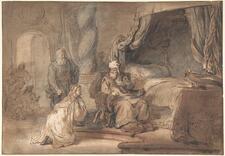
Bathsheba: Bible
Bathsheba is the married woman whom King David takes in adultery and who, though initially passive, becomes the pivotal figure in his downfall. The king has Bathsheba’s husband, Uriah, slain in battle and then takes her as a wife. While her first child, conceived in adultery, dies, the second, Solomon, becomes heir to the throne as a consequence of Bathsheba’s maneuverings.
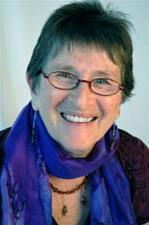
Evelyn Torton Beck
Rose I. Bender
Jessie Bernard
Sociologist Jessie Bernard’s feminist epiphany came at age 67 in 1969, but her earlier work anticipated feminist theory by discussing the differences between men’s and women’s experiences and arguing that quantitative studies did not accurately represent women’s stories.
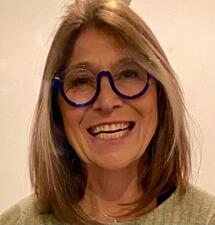
Analía Bortz
Analía Bortz is the first Latin American woman ordained as a Conservative rabbi. Her approach to spirituality and religion combines with her medical training. As a doctor specializing in bioethics, she has also helped women and couples with fertility issues.
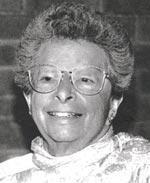
Ruth F. Brin
Naomi W. Cohen
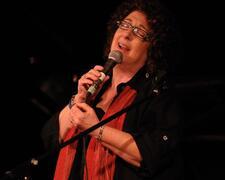
Adrienne Cooper
A versatile performer, scholar, administrator, and activist who worked in the fields of Yiddish culture, Jewish music, social justice, and feminism, Adrienne Cooper inspired international audiences with her compelling performances and nurtured a generation of musicians, academics, and advocates.
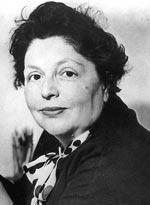
Lucy S. Dawidowicz
Lucy S. Dawidowicz was an American-Jewish historian whose influential and controversial works reflect her deep personal and academic commitment to the Jewish people. She spent time in Poland immediately before the Holocaust and time in Germany immediately after it. Dawidowicz’s works, which received numerous awards, concern American and Eastern European Jewry, and the Holocaust.
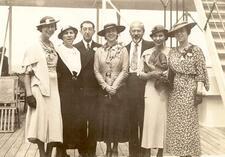
Judith Kaplan Eisenstein
The first American girl to publicly celebrate a bat mitzvah, Judith Kaplan Eisenstein went on to become a Jewish educator, composer, and musicologist. Her accomplishments included studying at the school that would later become Julliard, teaching at the Jewish Theological Seminary Teacher’s Institute, and writing a songbook for children.

Judith Laikin Elkin
The historian Judith Laikin Elkin Is best known as the founder of the Latin American Jewish Studies Association (LAJSA). She was the author of the foundational text The Jews of Latin America as well as research guides and two memoirs.
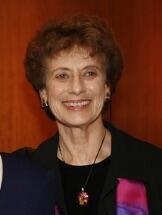
Penina Migdal Glazer

Louise Glück
Louise Glück, American poet, essayist, and educator, was the recipient of the 2020 Nobel Prize in Literature, as well as numerous other awards for her writing; she also served as poet laureate of the United States from 2003 to 2004. One finds the personal, the mythological, and the Biblical woven intricately throughout Glück’s oeuvre.
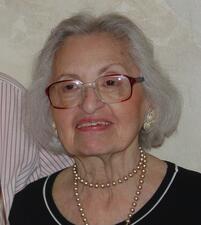
Doris Bauman Gold
Doris Bauman Gold was motivated by her long participation in Jewish organizational life to found Biblio Press, dedicated to educating Jewish women about their own history and accomplishments. Through Biblio Press, Gold published more than 27 general audience books that address and illuminate the culture, history, experiences, and spiritual yearnings of Jewish women.
Rivke Savich Golomb
Rivke Savich Golomb was an educator and Yiddishist who taught at Jewish schools in Warsaw, Palestine, Canada, and Mexico over the course of her career. She and her husband established Nuevo Colegia Israelita I. L Peretz in Mexico in 1950. Their “golombist” philosophy was based around integrating Yiddishkait into a humanist Jewish world.
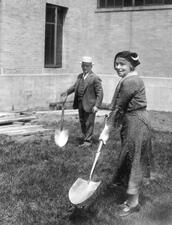
Hadassah in the United States

Judith Hauptman
The first woman to receive a PhD in Talmud, Judith Hauptman has made significant contributions to the academic study of the origins and development of the works of the “canon” of rabbinic literature of Late Antiquity. A second prominent focus of both Hauptman’s scholarly and other work has been Jewish feminism and the status of women in rabbinic and related literature, particularly exemplified in her best-known work, Rereading the Rabbis: A Woman’s Voice.
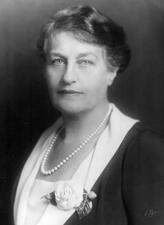
Hebrew Teachers Colleges in the United States
Jewish education in the United States was always the preserve of women on the “front lines” and in the classroom. In the early days of these programs, men “ran the show,” but beginning in the mid-twenteith century, women began to take on increasing roles as faculty members and administrators. In the early twenty-first century, women ascended to leadership positions in these institutions.
Gertrude Hirschler
A celebrated translator of deft skill and a woman of great principle, Gertrude Hirschler refused to translate, edit, or publish any book that did not mesh with her ideals or beliefs. Hirschler’s literary contributions are highly regarded in the areas of Jewish history, the Holocaust, religious literature, and Zionism.
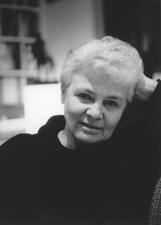
Holocaust Studies in the United States
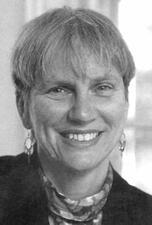
Paula E. Hyman
Distinguished historian Paula Hyman was engaged deeply in Jewish feminism and wrote extensively on the history of Jewish women in an effort to integrate their experience into the Jewish historical narrative. A role model for many, she challenged sacrosanct beliefs and stereotypes with vigor and knowledge and left behind a myriad of scholarly contributions and a profound vision for Jewish women.

Jewish Museums in the United States
American Jewish women have played an outsized role in the foundation of Jewish museums all over the country. Barred from traditional spaces of power in the early twentieth century, many women—adjacent to power as Rebbetzins, philanthropists, and secretaries of libraries and other Jewish organizations—leveraged their connections to found new kinds of cultural institutions: museums.


